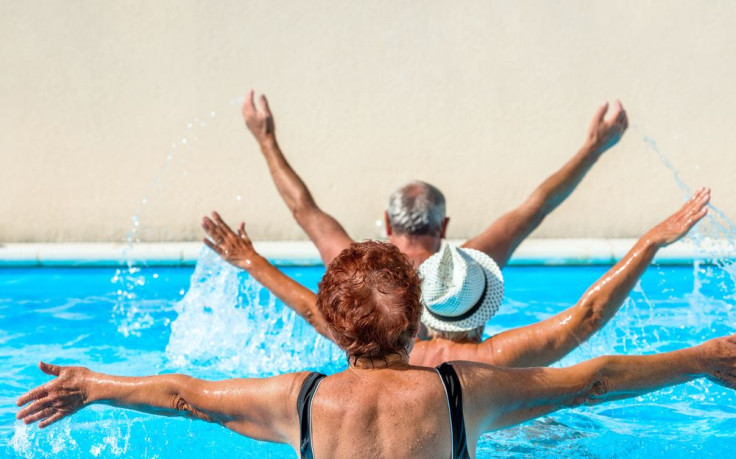Retired People's Skin Cancer Risk Is 7 Times What It Was 40 Years Ago

With summer right around the corner, it’s about that time of the year when some of us debate over what’s more important: a lower risk for deadly skin cancer or a solid, full-body tan. Data gathered by Cancer Research UK has revealed that people over the age of 65 are seven times more likely to develop malignant melanomas compared to their parents’ generation.
"It's worrying to see melanoma rates increasing at such a fast pace, and across all age groups," Professor Richard Marais, Cancer Research UK's skin cancer expert, said in a statement. "It is very important for people to take care of their skin in the sun. It is also important for them to keep an eye on their skin and seek medical opinion if they see any changes to their moles, or even to normal areas of skin. Melanoma is often detected on men's backs and women's legs but can appear on any part of the body."
Marais and his colleagues gathered the latest statistics available for skin cancer in the UK. On average, around 5,700 retirees are diagnosed with malignant melanoma each year compared to just 600 during the mid-1970s. Today’s male retiree is approximately 10 times more likely to be diagnosed with skin cancer compared to one from 40 years ago. Today’s female retiree is also five times more likely compared to their older counterparts.
A total of 13,348 people in the UK were diagnosed with malignant melanoma in 2011, while 2,148 people died due to this deadly form of skin cancer in 2012. Currently, malignant melanoma is considered the most common cancer overall in the UK and the second most common cancer among young adults. Cancer Research UK is working alongside NIVEA SUN to offer up simple advice for skin protection this summer.
“Many cases of malignant melanoma, the most serious form of skin cancer, are preventable by taking precautions in the sun and making sure you don’t burn,” said Dr. Julie Sharp, Cancer Research UK’s head of health information.
According to the retired people involved with the study, their generation was the first to experience affordable packaged holidays, meaning more access to areas with higher solar activity. Not only did people over the age of 65 have more access to sunny destinations, but they were also less educated when it came to sun and skin safety.
“Sun damage accumulates over time, so avoiding sunburn — and sunbeds — is key as well as getting to know your skin type so you don’t overdo it on the beach or even in the garden,” Sharp added. “You can burn at home just as easily as you can on holiday, so remember to spend time in the shade, wear a t-shirt and a hat to protect your skin, and regularly apply sunscreen that is at least Factor 15 and has four stars. Swapping bad sun habits for good ones could save your life.”
Although malignant melanoma is less common than non-melanoma skin cancer, it is also considered the most severe of all skin cancers. Lifestyle and other risk factors are linked to 86 percent of malignant melanoma cases each year in the UK. Evidence from Cancer Research UK has shown that getting sunburnt only once every two years can triple our risk for developing malignant melanoma.
Published by Medicaldaily.com



























